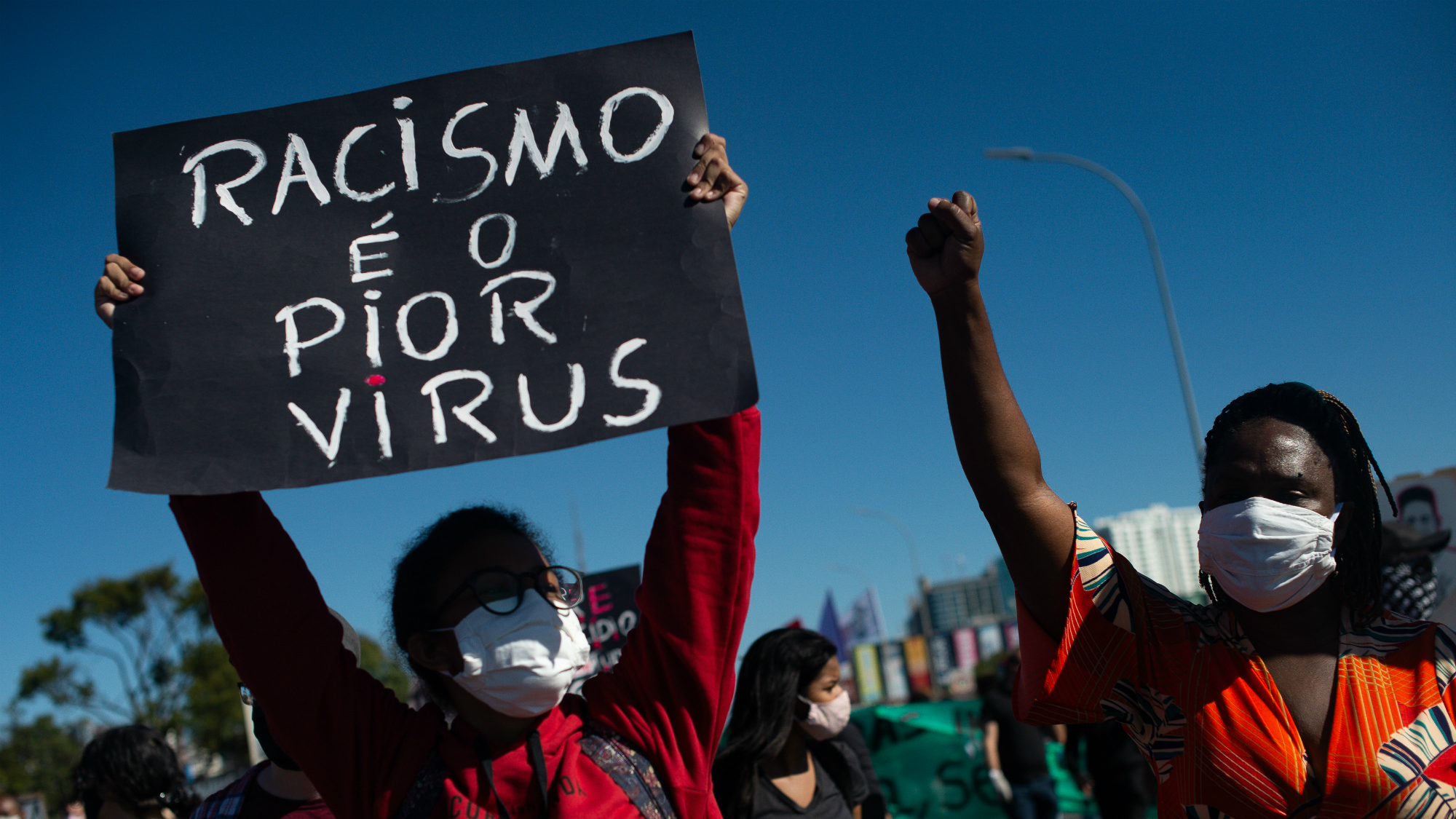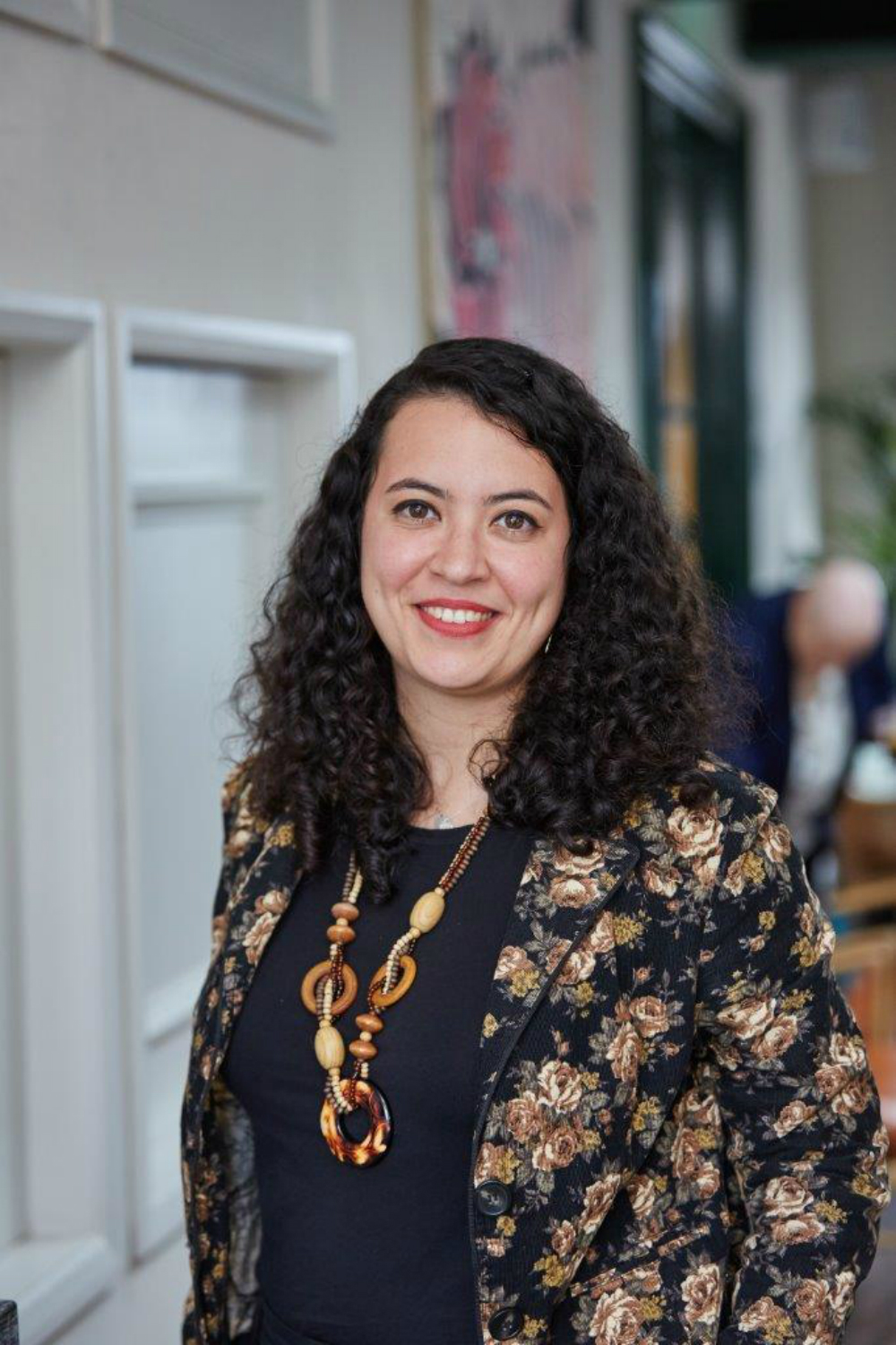'In Brazil it feels wrong to stay at home with everything that is going on'
For many people in Brazil, social distancing at home means potentially being killed by police. As the country's rate of coronavirus hits headlines, Brazilian journalist Nana Soares explains why those of us with privilege have a moral obligation to speak out and support those being victimised during the pandemic

Celebrity news, beauty, fashion advice, and fascinating features, delivered straight to your inbox!
You are now subscribed
Your newsletter sign-up was successful
For many people in Brazil, social distancing at home means potentially being killed by police. As the country's rate of coronavirus hits headlines, Brazilian journalist Nana Soares explains why those of us with privilege have a moral obligation to speak out and support those being victimised during the pandemic
'Like millions of people worldwide, my life was negatively affected by COVID-19. I haven’t seen my family in the last 80 days and I lost two jobs. Even so, I understood that the wisest thing to do was to stay at home until is safe to go outside again. So I began social distancing in mid-March.
In almost three months, I left the house twice: on April 12th, at 6 am, my partner drove me to the shore of Rio de Janeiro’s famous beaches as my birthday gift; exactly one month later we gave my mother in law a homemade cake for Mother’s Day. No touching, we just drove to her house and delivered the cake. Work, exercises, socialising and everything else now happens at home. My partner is a doctor and is only working one day of the week, trying really hard to stay healthy despite the lack of PPE and the overall feeling of insecurity due to the underreporting of cases.
As you can notice, this is an unbelievably privileged experience. For a start, I am fortunate enough to call my home a safe space - many women, children and other groups aren’t. In addition, despite the loss of income, I am still able to work - from home, as a freelance. Not ideal, but far from unbearable, especially as my partner continues to work. And as my country’s political scenario worsens, my privilege speaks louder and louder.
Brazil is now one of the hardest-hit countries, with more than 500,000 cases of COVID-19 and over 30,000 deaths. A disaster reinforced by the president, who has continuously denied the severity of the pandemic, is actively trying to undermine social distancing and saying unbelievable things. When asked to comment on Brazil's death toll - at the time, 5,014 people, he literally replied “So what?”, summarising the federal government’s response. Unsurprisingly, COVID-19 now affects even indigenous tribes at the heart of the Amazon and hundreds of kilometres away from health centres.

Now imagine if you’re following the recommendations and staying at home, but the police break into your house for no reason, shooting more than 70 times. This happened last May and killed João Pedro, a 14-year-old boy. Such episodes are not uncommon in Rio, where the police killed 1814 people in 2019, many of them only guilty of being black and poor.
No condolences from the government. Quite the opposite: the police is often treated as the hero. And it is, at least for Brazilians protesting against social distancing or against democracy. Or marching with torches, and other symbols of white supremacy. These Brazilians were never victims of police violence.
Celebrity news, beauty, fashion advice, and fascinating features, delivered straight to your inbox!
This is the context that motivated the black movement to go out to the streets to say that their lives matter - in the US and in Brazil too. They are risking their lives because...if they stay at home they are also murdered. Several anti-fascist groups are also in the streets protesting in the middle of a deadly pandemic. Why? Because white supremacists are feeling free to march as people stay at home.
Brazil’s current political crisis is equally bad as the public health one. And still, I have no plans to leave the house. Privilege, right? But it feels incredibly wrong to be here right now, even with a virus on the loose. Rationally, I don’t think a person should be judged for staying at home in this particular context, but I think people in this situation - like me - have the moral obligation to contribute and help those who are brave enough - or have no choice but - to protest in the streets. I am donating to organisations helping to fight coronavirus in the poorest communities and/or for racial justice. And if you’re privileged enough and also care about this, you can donate too.
What breaks my heart - and infuriates me - is that it shouldn’t be this difficult. We shouldn’t have to beg for human lives to be taken into account. This pandemic doesn’t need any extra layer of difficulty than the ones it already poses, and yet we have to deal with governmental neglect (when it comes to COVID-19) or brutality (when it comes to black and poor people). It is hard not to lose hope. So far, it feels that even if we control the virus, we have already lost.'
The leading destination for fashion, beauty, shopping and finger-on-the-pulse views on the latest issues. Marie Claire's travel content helps you delight in discovering new destinations around the globe, offering a unique – and sometimes unchartered – travel experience. From new hotel openings to the destinations tipped to take over our travel calendars, this iconic name has it covered.